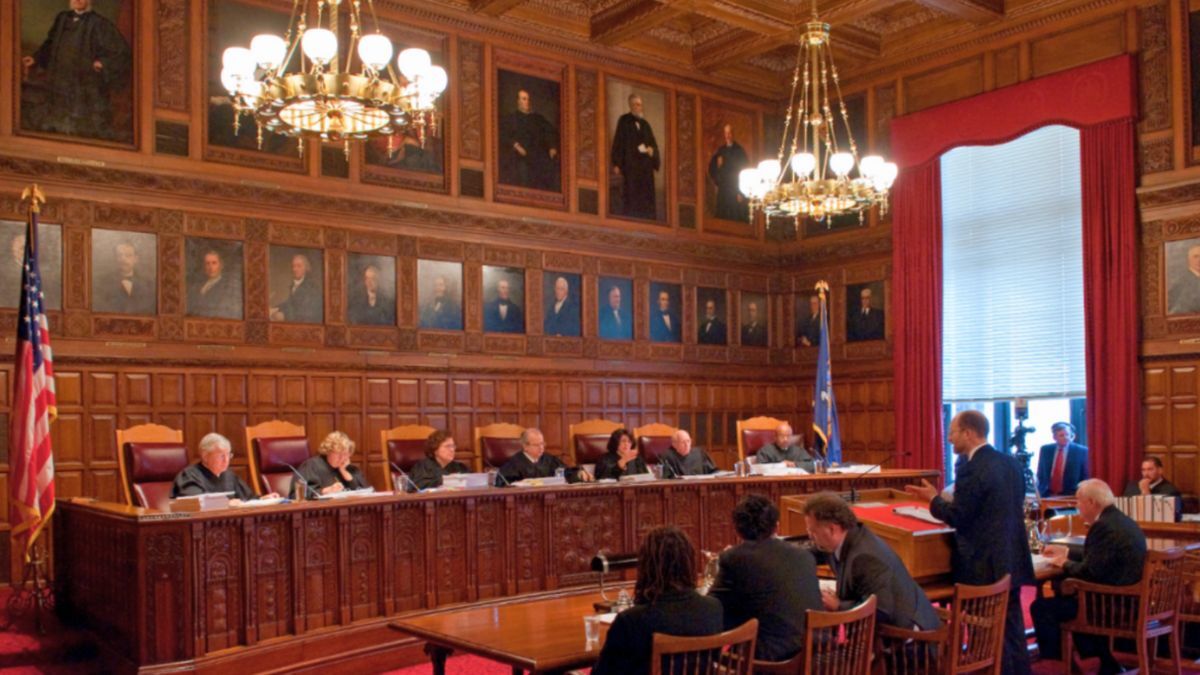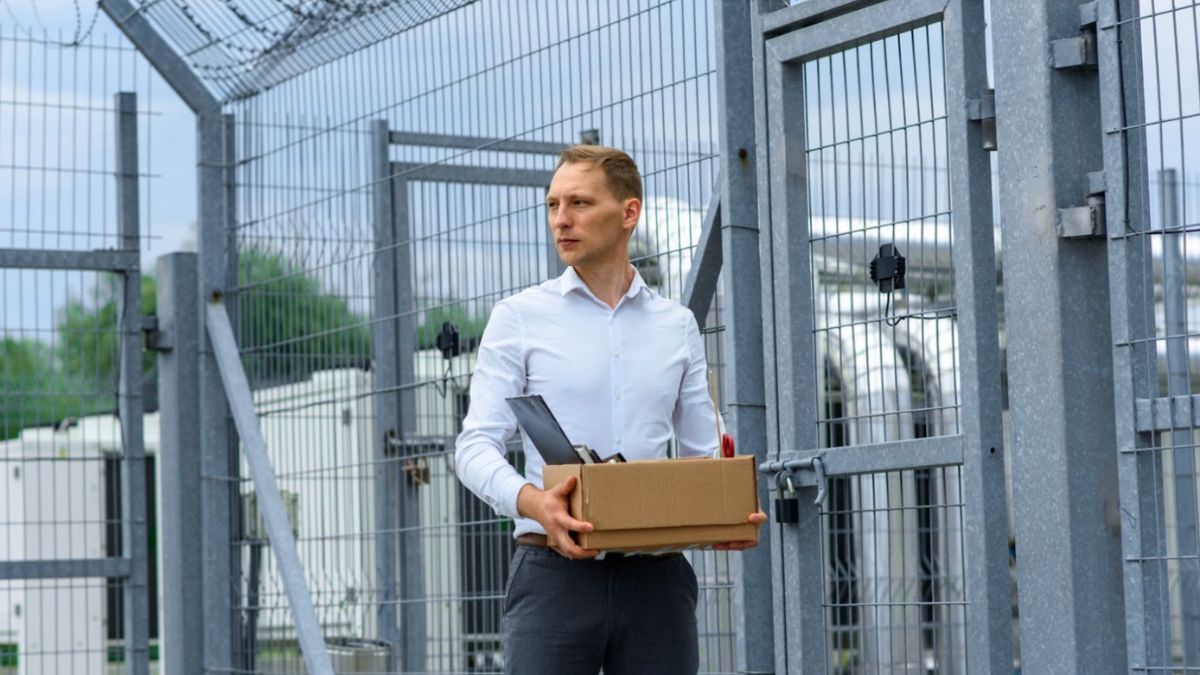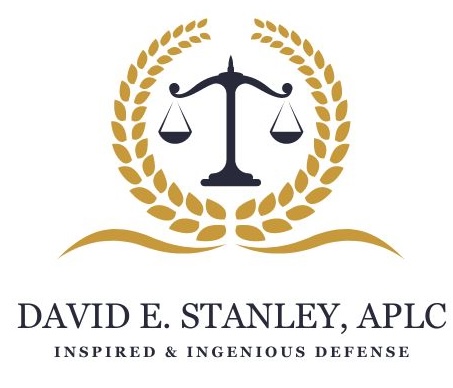Criminal Appeal Lawyer:
Can New Evidence Turn the Tide?
Every day, individuals with convictions often feel overwhelmed by their circumstances. However, new evidence can significantly change the course of a case. A criminal appeal lawyer can help individuals challenge their convictions by leveraging newly discovered information. Understanding the role of new evidence in the appeals process is essential.

David E. Stanley, APLC, is dedicated to helping clients understand their rights and options for appealing a conviction. He will guide you through the appeals process, evaluating how newly discovered evidence may affect your case. Whether it involves revealing forensic evidence not presented during your trial or addressing witness recantations, we support you every step of the way. Hope is within reach—individuals facing wrongful convictions can explore a variety of available options.
Take the First Step Towards Justice.
What Is a Criminal Appeal?
Table of Contents
ToggleA criminal appeal provides individuals with the opportunity to challenge a conviction after a trial. It focuses not on retrying the case but on reviewing what transpired during the original proceedings. A criminal appeal lawyer examines whether any legal mistakes occurred that could have affected the outcome of your case. These mistakes could include improper evidence of admission or incorrect jury instructions.
In essence, an appeal involves requesting a higher court to review the case thoroughly. If they discover errors, they can overturn the decision or mandate a new trial. This process plays a vital role in safeguarding your rights and advancing the pursuit of justice.
The Importance of New Evidence
New evidence encompasses information that was unavailable during your initial trial but has the potential to change the outcome of your case significantly. This evidence may include testimony from a new witness or previously unexamined DNA samples.
A skilled criminal appeal lawyer can help you understand the potential for new evidence in your appeal. They can assess its admissibility and evaluate its impact on your case, even though appeals generally limit the introduction of new evidence.
Examples of New Evidence
The following are examples of new evidence:
Witness Testimony
Witnesses may have various reasons for hesitating to testify during a trial. They might feel intimidated, uncertain, or pressured, leading them to withhold crucial information. However, after the trial concludes, some witnesses may find the courage to come forward with new or additional testimony. This new evidence can be pivotal in an appeal, as it may provide insights that could change the case’s outcome. For instance, if a witness initially claimed they saw the defendant at the scene but later admitted they were mistaken or under duress, this could significantly impact the conviction.
Forensic Evidence
Advancements in forensic science can introduce new testing methods that were unavailable during the original trial. DNA testing, for instance, has grown significantly more precise over the years. New techniques may now analyze previously inconclusive or excluded evidence, creating a strong basis for an appeal. Consider a case where hair samples from a crime scene went untested due to outdated methods; with updated testing, a match to a different suspect could shift the appeal’s direction.

Recantations
A witness who previously testified against you may later retract their statement, acknowledging that they were either mistaken or pressured to provide false testimony. Retractions can serve as compelling new evidence in an appeal because they directly challenge the credibility of the original testimony that led to your conviction. For example, if a key witness later states that law enforcement pressured them to testify against you, this could weaken the prosecution’s case and justify reevaluating your conviction.
The Criminal Appeals Process
Understanding how the appeals process works is essential for anyone considering an appeal. Here’s a detailed breakdown:
Filing a Notice of Appeal
Begin this step by filing within the required timeframe following your conviction—usually within 30 days for misdemeanors and 60 days for felonies in most jurisdictions. This notice informs both the court and the opposing party of your intention to challenge the verdict.
Gathering Records
Your criminal appeal lawyer gathers essential documents from your trial, including transcripts and evidence presented. These records are vital, as appellate courts focus exclusively on information from the original trial to reach their decisions. Missing documents could affect the outcome of your case.
Writing Briefs
Both sides submitted written arguments outlining their positions regarding the appeal. The appellant’s brief details the alleged errors and how they affected the trial’s outcome, while the appellee’s brief defends the original ruling. These briefs are crucial as they frame the issues for appellate judges.

Oral Arguments
In some cases, lawyers may present their arguments before judges, who will ask questions and seek clarification. This oral presentation allows lawyers to emphasize critical points and respond directly to judges’ inquiries.
Awaiting Decision
After reviewing everything, the appellate court will make its decision based on the law and facts presented. This process can take several weeks or months, depending on the complexity of the case and court schedules.
Why You Need a Criminal Appeal Lawyer
Navigating an appeal can be tricky without proper legal guidance. Here are some reasons why hiring a criminal appeal lawyer is crucial:
Knowledge of the Law
They possess a deep understanding of appellate law and procedures relevant to your jurisdiction. This knowledge is vital for recognizing potential grounds for appeal.
Experience with New Evidence
They know how to handle cases involving new evidence effectively so that any new information is presented correctly and within legal guidelines.
Strategic Thinking
A skilled lawyer can develop strategies tailored to your specific situation and needs. They’ll analyze your case critically to determine the most effective approach for your appeal.
Adhering to Deadlines
Timely filing is essential to preserving your right to appeal. A criminal appeal lawyer tracks all required deadlines, helping you stay on course through each crucial step in the process.
Common Grounds for Appeal
When considering an appeal, it’s essential to know what grounds you might have:
Legal Errors
Judges’ errors during a trial, such as incorrect jury instructions or rulings on evidence admissibility, often provide grounds for an appeal that could impact the verdict.
Ineffective Assistance of Counsel
If your original lawyer did not adequately represent you—for example, by failing to investigate critical evidence or not effectively preparing for trial—this could provide grounds for an appeal.
Newly Discovered Evidence
New evidence absent in the original trial can support an appeal by potentially influencing the case’s outcome. Courts may review this new information as part of the appeals process.
Frequently Asked Questions
What is a Criminal Appeal?
A criminal appeal is a legal process where an individual convicted of a crime seeks to challenge the conviction in a higher court. The appeal aims to identify and correct any legal errors that may have occurred during the trial.
What Grounds Can I Use to Appeal My Conviction?
The most common grounds for criminal appeal include ineffective assistance of counsel, legal errors made during the trial, insufficient evidence to support a conviction, prosecutorial misconduct, jury misconduct, and sentencing errors.
How Does New Evidence Impact My Appeal?
New evidence can impact a case’s outcome by offering insights that question the original conviction. A criminal appeal lawyer evaluates this evidence and its admissibility throughout the appeals process.
How Likely Are Criminal Appeals to Succeed?
The success rate for criminal appeals is generally low, with estimates suggesting that only about 15-20% result in a reversal or a new trial. The outcome depends on the specifics of each case and the strength of the legal arguments presented.
How Long Does the Appeals Process Take?
The appeals process can take different lengths of time based on the case’s complexity and the court’s schedule, often requiring several months to years to reach a final decision.
What Role Does a Criminal Appeal Lawyer Play in the Process?
A criminal appeal lawyer assists clients throughout the appeals process by assessing case details, filing essential documents, and presenting arguments to higher courts. Their knowledge empowers clients to comprehend their rights and available options.
Can I Present New Evidence During My Appeal?
Absolutely. Although appeals primarily concentrate on the original trial record, you can introduce new evidence in specific situations. A knowledgeable criminal appeal lawyer can assess whether this new evidence is admissible and how it may influence your case.
Navigating Appeals:
The Value of Professional Guidance

Facing a criminal conviction can be overwhelming, primarily when new evidence arises that could change everything. Understanding how this process works and knowing when to seek help from a criminal appeal lawyer is essential for protecting your rights. David E. Stanley, APLC, will guide you through each stage of the appeals process and advocate for justice on your behalf. Remember, a conviction doesn’t close the door on your options!
Reclaim Your Future with a Criminal Appeal.
David E. Stanley, APLC
1055 Laurel Street, Suite 2 Baton Rouge, LA 70802
225-926-0200

David Stanley is the founder and principal of David E. Stanley APLC. Since 1983, Mr. Stanley has successfully practiced law from his office in Baton Rouge, Louisiana.

